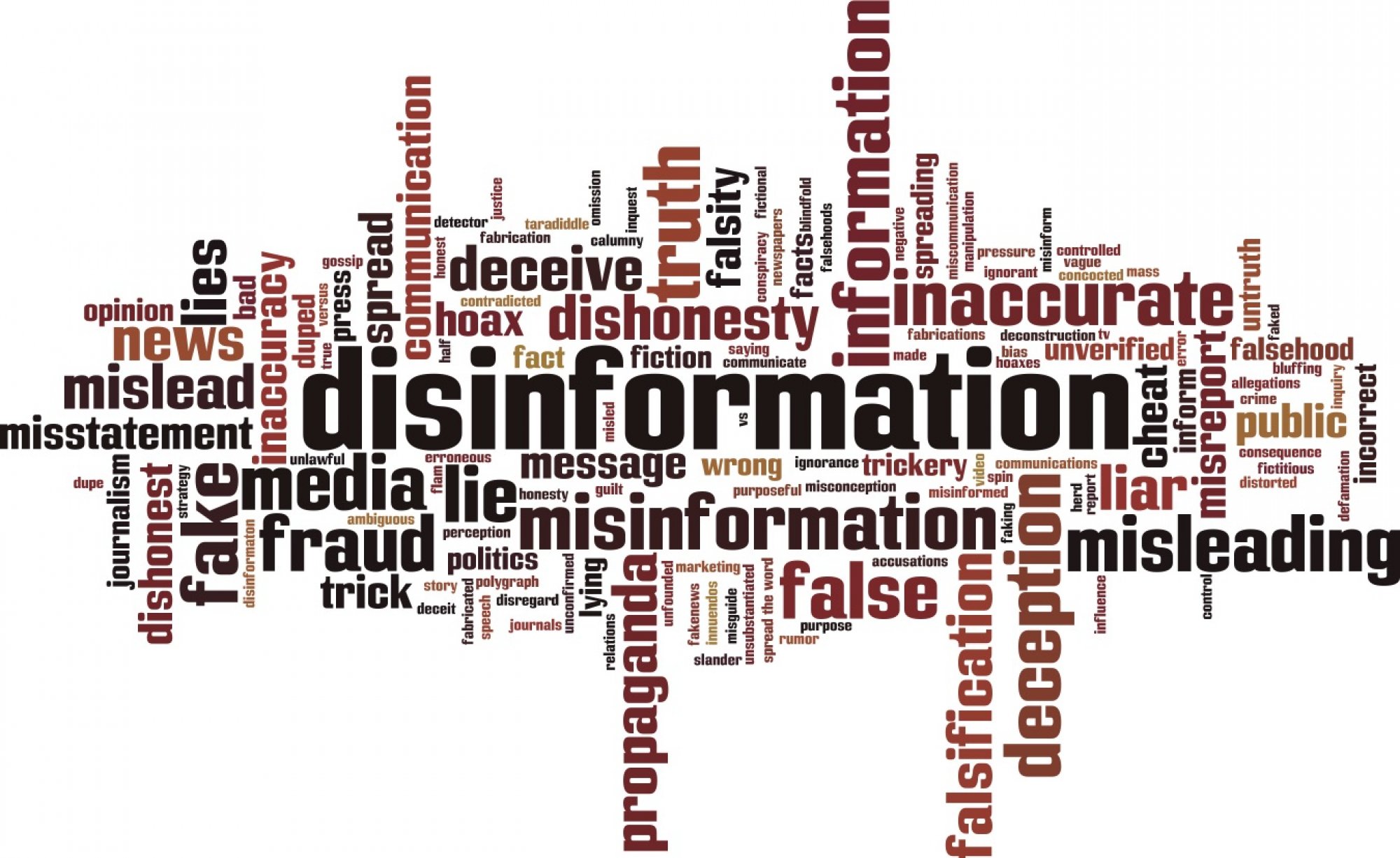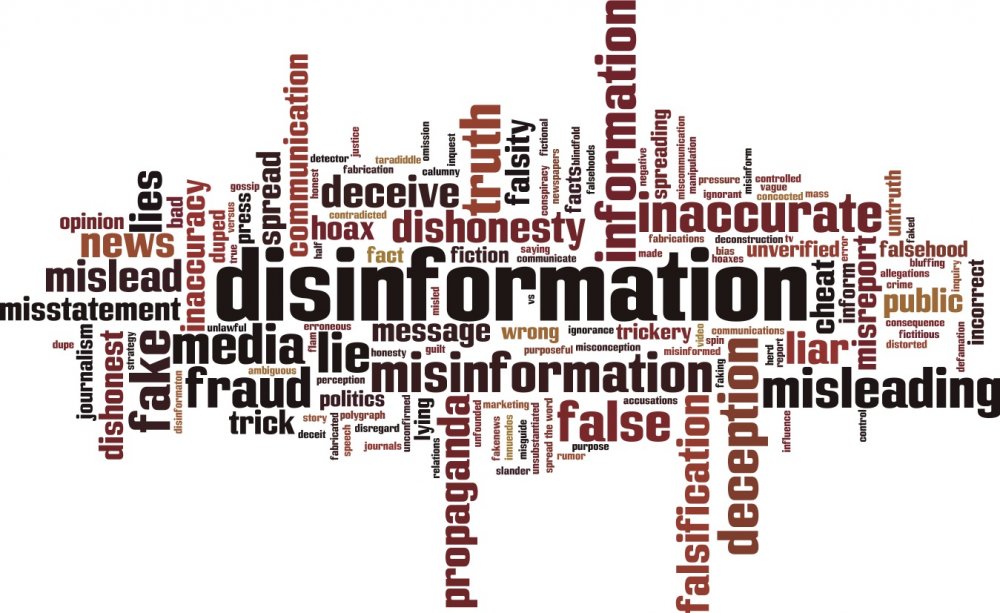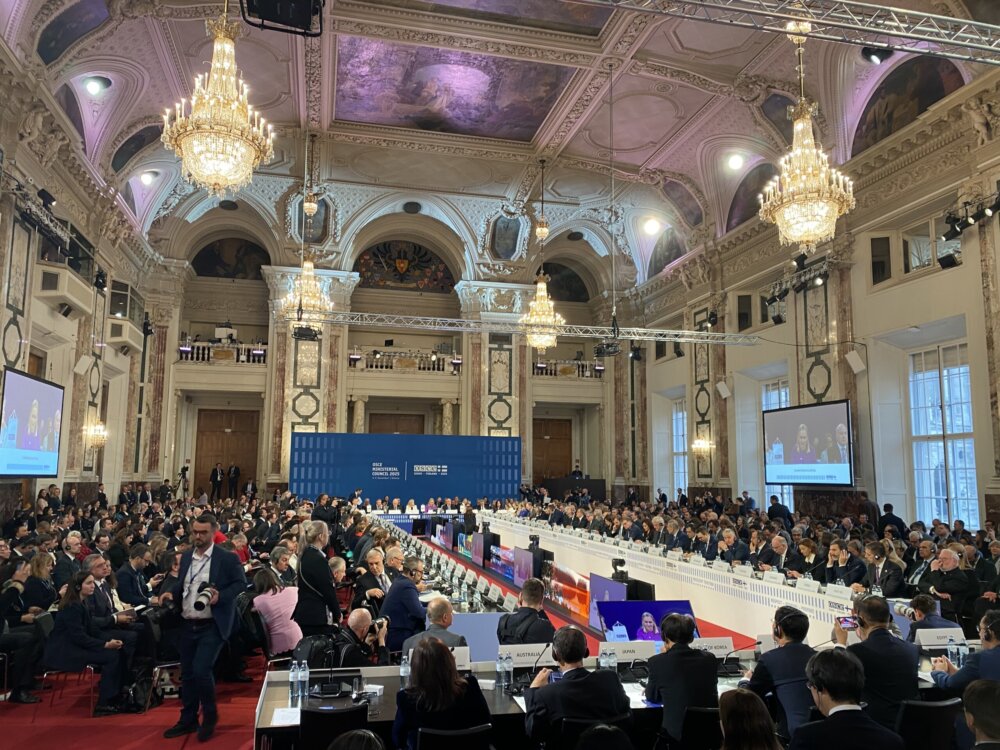Countering Disinformation / shutterstock

Exploiting historical grievances and fears: Disinformation narratives in Central Europe
Employing hybrid threats including information operations is much cheaper and more cost-effective in disturbing a democratic society than the deployment of tanks. Such subversive methods have been utilized by many actors, including China, Iran, Turkey and many more. However, the most pronounced actions, especially in Central and Eastern Europe, are those of the Russian Federation.
Via trolls and automated bots, the Kremlin’s Internet Research Agency, which is a “troll farm” mentioned in the Mueller Report on the Investigation into Russian Interference in the 2016 Presidential Election, has been intensively promoting its particular narratives and affiliated political candidates while waging discrediting campaigns against their opponents in Central and Eastern Europe. A vast increase in such information operations occurred after the illegal annexation of the Crimean Peninsula by the Russian Federation. Another tool utilized by the Kremlin’s propaganda machine is its news agency Sputnik International, in Central Europe via its Czech and Polish version.
Pro-Kremlin actors and outlets first and foremost question and undermine the membership of Central and Eastern European countries in the European Union (EU) and NATO, and via this disturb the decision-making processes and effectiveness of these international organizations. In past years, disinformation narratives spread by Russia became increasingly adopted and disseminated by other actors, including mainstream politicians, who saw that they resonate among their voters. Thus, many of the grievances in societies are present with or without Russian disinformation. One of the main tactics is to exploit the grievances.
Spreading anti-NATO narratives
However, the Kremlin also pursues country-specific approaches. In Slovakia, where support for NATO is low in comparison to the other Visegrád Four countries, pro-Kremlin disinformation campaigns are focusing on spreading anti-NATO narratives, for example, by portraying the transfer of the ally’s military equipment as a preparation for invasion or coups, and by presenting NATO as a puppet of the United States.
The fact that Slovaks are susceptible to such disinformation is confirmed by public opinion poll findings: 40% of Slovaks think that NATO and the U.S.-led coalition support terrorists in Syria. By comparison, 65% of Poles and 62% of Czechs disagree with this false statement. In addition, 41% of Slovaks think that the US is a threat to their country, by far the highest number in the whole region. This negative perception of the U.S. is the result of many years of systematic spread of disinformation by Slovak pro-Kremlin outlets and actors. Examples include the Eastern European Cultural Initiative, an institution spreading anti-Western narratives and disinformation, Main News (Hlavné správy), or thedisinformation outlet Earth and Age (Zem a vek).
Spreading anti-EU and anti-immigration sentiments
In the case of the Czech Republic, the main focus of disinformation has been the European Union, because Czechs have been perceived as the most Eurosceptic within the region. This negative perception of the EU has been taken over by Czech politicians, with some of them actively adopting and further spreading pro-Kremlin disinformation narratives about the EU.
In Central Europe smear campaigns and negative perceptions of the EU are connected to its liberal and gender policies, including equal rights for LGBTI minorities. Among the most commonly spread disinformation narratives are those undermining liberalism, depicting independent media and NGOs as foreign agents and blaming George Soros for organizing coup d’états and Euromaidan revolutions in these countries. Such conspiracies were widely spread, especially in the first half of 2018, when large public protests were organized in the Czech Republic and Slovakia after the murder of the Slovak investigative journalist Jan Kuciak and his fiancé.
The “Brussels dictate”
Anti-immigration and anti-EU sentiments were also spread before the elections to the European parliament in May 2019. Protection of nation-states has been one of the narratives disseminated by the Kremlin in the region. Therefore, anti-immigration and anti-EU narratives are often disseminated by domestic political representatives who are often pro-Kremlin and repeat the same arguments.
Migrants and refugees trying to reach the EU were framed by disinformation outlets as an “existential threat to Europe”. The migration crisis was depicted through the lens of a “Brussels dictate”, thus directly supporting the agendas and worldviews of extremist political parties in the region. Disinformation outlets[1]used well-known tactics of selective reporting of alleged criminal acts carried out by migrants of African or Arab origin or simply of a different skin color. The inflammatory posts generalized such individual behavior and individual offences to apply a characteristic of “natural criminality” to whole populations. This tactic is very effective because it does not represent a clear-cut disinformation practice that can be easily disproven.
In Hungary, anti-migrant and anti-EU sentiments have been part of the mainstream political debate for several years as, according to them, the “Brussels dictate” has been trying to impose migration quotas and suppress their national identity. In 2014, the newly opened underground line in Budapest, which was actually financed by the EU, featured an anti-EU campaign by the government.
At the beginning of 2019, the Hungarian government also launched a campaign targeting the president of the EU commission, Jean-Claude Juncker, and accusing Brussels of pushing migration plans that “threaten Hungary’s security.” The monitoring of Hungarian social media accounts prior to the European Parliament revealed the spread of conspiracy theories about dissolution of nation states, Islamization of Europe and a secret study by the European Commission about “importing” millions of foreigners into Europe. Alarmingly, such disinformation narratives and conspiracy theories were disseminated in Hungary both by pro-government mainstream media (PestiSracok.hu, hirado.hu and origo.hu.), as well as far-right disinformation outlets (Patriotic Europe Movement (Patrióta Európa Mozgalom and HUN-News). In this respect there is little to no distinction between them.
Spreading fear and anger
Interestingly though, migration did not play a role in Poland during the campaign leading to the European Parliament election. Polish citizens are traditionally very supportive of EU and NATO membership and disinformation operations against these international organizations therefore do not echo among the public. It was the U.S. law on the restitution of Jewish property seized during or after World War II that resonated on Polish Facebook accounts instead. The law led to a far-right march on May 11, 2019 in Warsaw against the so-called Just Act, a U.S. law on the restitution of Jewish property seized during World War II.[2] Many Poles fear that the JUST Act means acknowledging the Jewish-Israeli historical narrative which makes Poland partly responsible for the Holocaust, something Polish officials have attempted to prevent from spreading and have actively rebuked.
Thus, malign information operations in Poland are focusing on stirring fear, anger and forgotten grievances among Polish citizens and Polish minorities elsewhere. GLOBSEC data shows that 39% of the Polish respondents agree with anti-Semitic conspiracy statements that Jews have too much power and secretly control many governments and institutions around the world. A study of the INFO OPS Poland Foundation revealed a massive disinformation machine in Poland stirring grievances and animosity among Poles and Ukrainians, thus attempting to polarize these two nations and minority groups in the respective countries.
Building resilience and critical thinking
Recognition of information operations and a free and open communication about these threats and about the vulnerabilities of one’s own society are major steps towards building national resilience. These efforts have to go hand in hand with a strategy to foster critical thinking and media literacy. Educated citizens who are aware of the threat of disinformation are less prone to becoming susceptible to it.
*Katarína Klingová is a senior research fellow at the GLOBSEC Policy Institute. As member of Strategic Communication program she has been monitoring disinformation in Slovakia and Central European region since 2016.
[1]Such tactics were used by Facebook pages of disinformation outlets as Earth and Age (Zem a vek), Source (Zdrojj), Infowar (Infovojna), Czech version of Sputnik International, Protiproud, Vilaghelyzete.com. Full list of monitored disinformation Facebook pages is available here.
[2]The Justice for Uncompensated Survivors Today (JUST) Act, or Act 447, requires the U.S. Department of State to provide a report to Congress on the progress of dozens of countries that signed a declaration in 2009 on the restitution of assets seized during or following World War II, including the restitution of heirless property to assist needy Holocaust survivors.
Comments
One response to “Exploiting historical grievances and fears: Disinformation narratives in Central Europe”
Leave a Reply
* Your email address will not be published



DIVERSIFICATION
If the Freedom of Information (FOI) must be maintained within the media…
Stakeholders must manufacture an Accountable Journalism for a win within True Journalism. The efforts of fact-checking organizations is laudable but “a drop off in the ocean.” I employ Minds to reason into a Thought-Ideas I think could help.
ZachariahWisdom
wisdomzachariah@gmail.com
ANTIFAKENEWS CAMPAIGCAMPAIGN